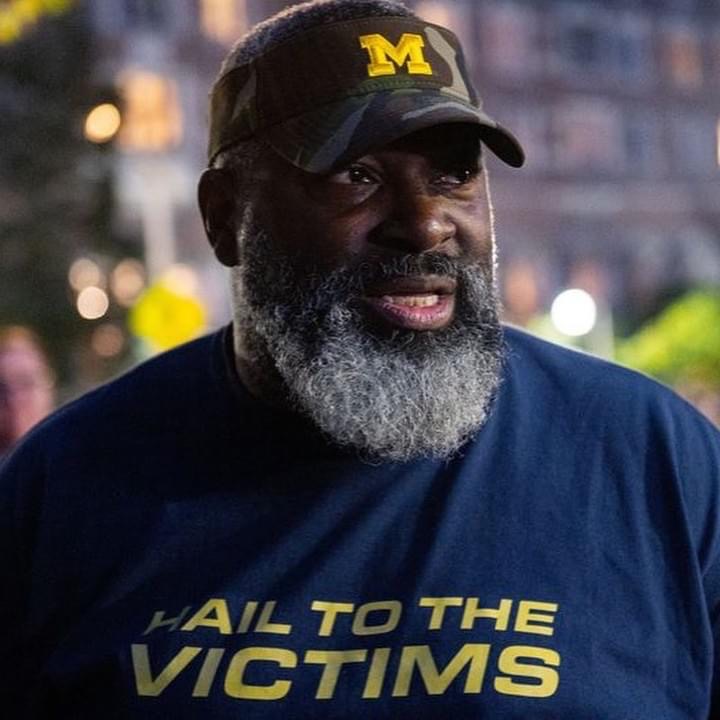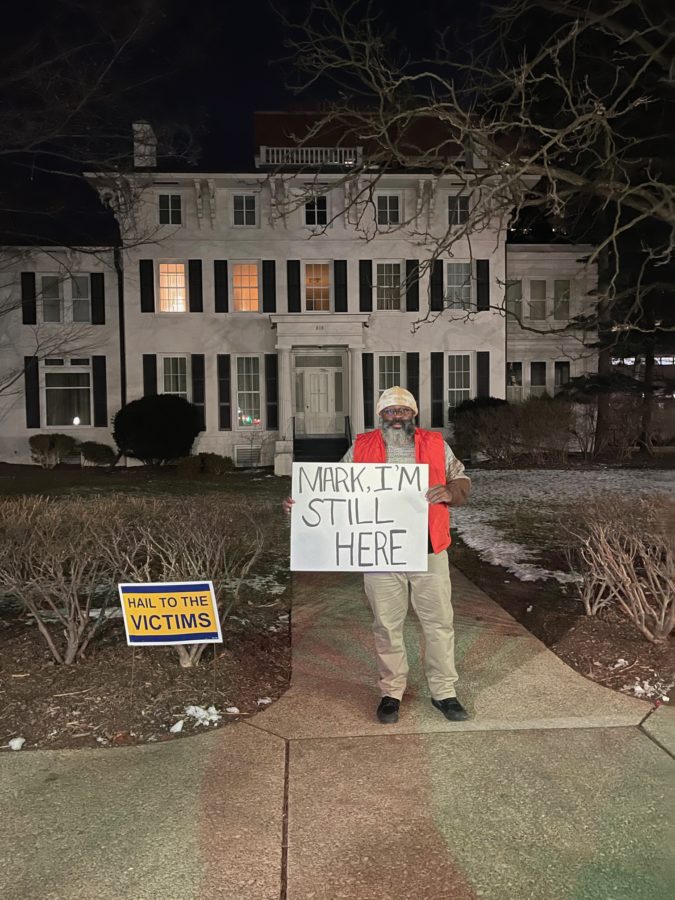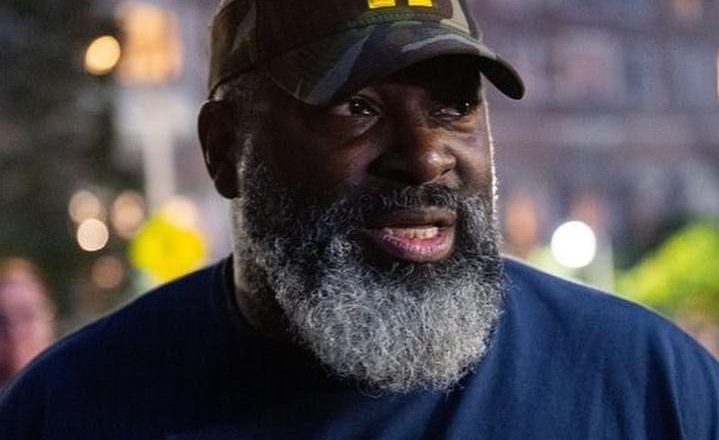To those who want to keep young people safe,
Growing up in Florissant, Missouri, a suburb of St. Louis, my passion was soccer and I dreamed about going to Europe to play. But during my senior year of high school my mother was battling breast cancer.
She said to me, “If I die through this, I’ve achieved all my goals in life because I got my boys to college.”
That was when I knew I had to get serious about college. And thankfully, I was already highly recruited to play Division 1 football.
Les Miles recruited me to go to Michigan. Unlike other coaches, he didn’t offer me any illegal benefits. He told my family and me that I’d get an education, the program would watch out for me, and I would become a Michigan man.
I thought he valued me as a person, so I chose Michigan.
My childhood was filled with trauma and violence. So, when I arrived in Ann Arbor in the fall of 1988, I felt like I had escaped all the horrors of my youth. Finally, at Michigan, I thought I was free.
But I wasn’t.
When I arrived in Ann Arbor in the fall of 1988, I felt like I had escaped all the horrors of my youth. Finally, at Michigan, I thought I was free. But I wasn’t.
After orientation, I had my first physical with the late Dr. Robert Anderson, the physician that worked for Michigan’s athletic department.
Enter Your Email to Unseal Premium Content
He went through some standard tests: blood pressure, height, and weight.
However, after revealing that my mother was battling breast cancer, he told me I needed an exam for testicular cancer and requested I drop my shorts. That’s when the abuse happened – disguised as a medical examination.
I saw Dr. Anderson, who died in 2008, approximately 50 times throughout my next three years at Michigan. And whether I had a cold, strep, or any other ailment, he always asked me to drop my pants. After that very first appointment, I don’t remember him ever using gloves again.
For years, I didn’t realize I was again the victim of abuse. I trusted Dr. Anderson. I trusted Michigan.
On March 26, 2020, two weeks after my 50th birthday, my former teammate called me asking if I had seen his email. The email revealed that all those exams – all those times he asked me to drop my draws – weren’t for my health. It was for Dr. Anderson’s pleasure.
Dr. Anderson was a predator.


Like many victims, the experience took a toll on my physical and mental health – sometimes without realizing the source. For years, I truly didn’t care if I lived or died. I’d ride my motorcycle recklessly and walk through life numb – not wanting to feel pain or even acknowledge the pain existed. Some other players avoided going to doctors for all these years. Now, at least one is struggling with a fatal illness that could have been avoided if he had gone for his checkups. When all the pieces started coming together, I felt so many emotions, including anger, confusion, and betrayal.
I had so many questions: What did Michigan know? Why didn’t they protect us? How many people did he abuse? And what now?
An independent report commissioned by the university answered some of those questions.
According to the report, Dr. Anderson worked for the university from 1966 to 2003. In 1975, a wrestler, Tad DeLuca, complained about Dr. Anderson but his concerns fell on deaf ears. A senior university administrator was told about Dr. Anderson’s misconduct several times between 1978 or 1979 and 1981, but he did not take appropriate action. And in 1981, the school transferred him into the athletic department. Through the years, there were many warnings and many people aware of wrongdoing, yet Dr. Anderson was able to abuse students repeatedly for 37 years.
In a lawsuit against Michigan, there were 1,050 plaintiffs, but the number of victims likely well exceeds that.
The school has settled our lawsuit for 490 million, roughly $466,000 per plaintiff. The school’s insurance will pay us, and the school will move on nearly unscathed. Brands will continue to pay the school. TV rights will continue to pour in income for the school. Reporters will still hustle for interviews and press passes.
Sexual assault, in general, continues to be a massive problem on college campuses, including Michigan. In 2021, Michigan reported 530 total complaints of possible sexual and gender-based misconduct on campus.
The problem is that Michigan and many other universities do not prioritize students’ safety on campus over making money.
Instead of coming together to help victims, schools are joining forces to protect each other. Ohio State, Michigan State, USC, and Minnesota are among the schools with sexual abuse scandals involving adults in power positions. And after a judge ruled that victims could sue Ohio State for abuse by Dr. Richard Strauss, seven universities, including Michigan, signed a letter supporting Ohio State’s mission to try and prevent victims from filing lawsuits.
Even when lawsuits, like the one at Michigan, are settled, cutting a check doesn’t equate to accountability. The previous or current university president at Michigan wouldn’t talk to me one-on-one. How can you change if leaders don’t listen and speak to the people who have been harmed?
If we want to create a safer campus, anyone who had any awareness of Dr. Anderson’s abuse should be fired. More protocols need to be in place. The school has apologized for Dr. Anderson’s behavior but not for their role in allowing it to continue for so long.
Many of the late Dr. Anderson’s victims were young black men. Society often doesn’t accept that men could be raped, especially big strong men. At Michigan State, where Dr. Larry Nassar abused young, primarily white, females, the school settled for 500 million with 332 plaintiffs. We settled for ten million dollars less, with more than triple the number of plaintiffs.
There is often this “shut up and dribble” mentality toward us. People don’t want to talk about our abuse, and often, people don’t sympathize with us, which makes it easier for it to keep happening. Sexual abuse against us is real and shouldn’t be ignored, dismissed, or viewed as any less traumatic.


Victims, students, and future students need your support. We need all of your voices. We need our stories to be more than a two-minute news clip but rather an ongoing movement influencing change.
Recently, I launched One Solidarity, a global movement to fight sexual assault predators, promote institutional accountability, and unite survivors.
It’s up to us to fight back – to join in solidarity – to make universities and their staff more accountable and put more protocols in place for student safety:
- Write letters
- Sign petitions.
- Share your story, my story, and this letter.
- Don’t buy tickets to games until schools stop covering up and enabling sexual assaults on campus.
- Stop purchasing goods from brands in business with schools that have enabled sexual abuse.
Michigan should have been where I found freedom from abuse and violence.
I can’t change my past, but together we can stop Michigan, or any other university, from becoming someone else’s prison.
Sincerely,







